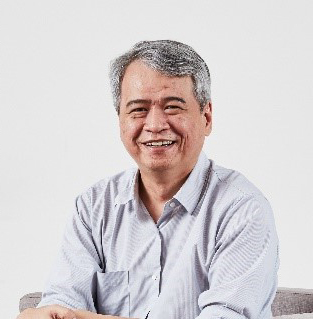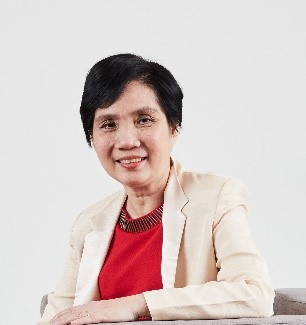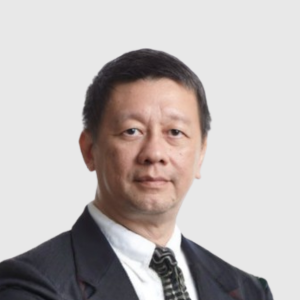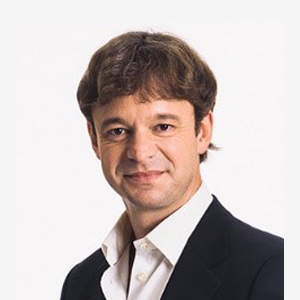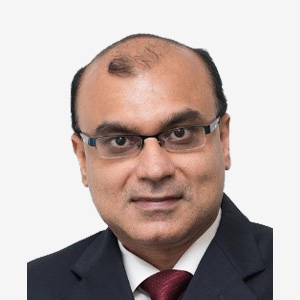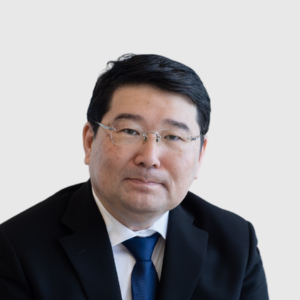Master of Science in Behavioural and Implementation Sciences in Health (MSc BIS)
Overview

- First in NUS to be offered as a “hybrid” Master’s degree programme
- Learn through first-hand experiences with our world-renowned panel of experts
- Uniquely combines behavioural and implementation sciences to address urgent healthcare needs in Singapore and the surrounding region
Intake: August 2026
October 2025
May 2026
Ideal candidates for the programme
Graduates can pursue careers in roles such as:
- Healthcare Project Managers
- Population Health Professionals
- Health Services Researchers
- Policy Advisors
- Implementation Specialists/Analysts
- Project Consultants
- Implementation Leads
- Behavioural Economists
- Organisational Scientists
Programme Faculty
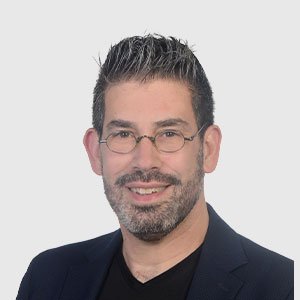
Prof Nick Sevdalis
Academic Director,
Centre for Behavioural and Implementation Science Interventions (BISI), NUS Yong Loo Lin School of Medicine

Dr Aoife Keohane
Programme Director,
MSc in Behavioural and Implementation Sciences in Health (MSc BIS)

Adj Prof Joanne Yoong Su Yin
Adjunct Professor,
NUS Yong Loo Lin School of Medicine
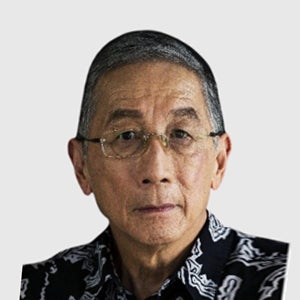
Prof Tikki Pang
Visiting Professor,
NUS Yong Loo Lin School of Medicine

Prof Gayatri Kembhavi-Tam
Visiting Professor,
NUS Yong Loo Lin School of Medicine

Adj Asst Prof Serene Koh
Adjunct Assistant Professor,
Centre for Behavioural and Implementation Science Interventions (BISI), NUS Yong Loo Lin School of Medicine
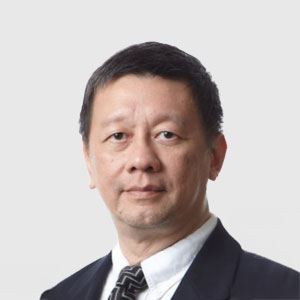
A/Prof Jason Yap Chin Huat
Associate Professor,
NUS Saw Swee Hock School of Public Health

Dr Eugene Tay
Senior Research Fellow,
Centre for Behavioural and Implementation Science Interventions (BISI), NUS Yong Loo Lin School of Medicine

Adj A/Prof Chan Siew Pang
Adjunct Assistant Professor,
Centre for Behavioural and Implementation Science Interventions (BISI), NUS Yong Loo Lin School of Medicine

Prof Nick Sevdalis
Academic Director
Centre for Behavioural and Implementation Science Interventions (BISI), NUS Yong Loo Lin School of Medicine

Dr Aoife Keohane
Programme Director
MSc in Behavioural and Implementation
Sciences in Health (MSc BIS)

Adj Prof Joanne Yoong Su Yin
Adjunct Professor
NUS Yong Loo Lin School of Medicine

Prof Tikki Pang
Visiting Professor
NUS Yong Loo Lin School of Medicine

Prof Gayatri Kembhavi-Tam
Visiting Professor
NUS Yong Loo Lin School of Medicine

Adj Asst Prof Serene Koh
Adjunct Assistant Professor
Centre for Behavioural and Implementation Science Interventions (BISI), NUS Yong Loo Lin School of Medicine

A/Prof Jason Yap Chin Huat
Associate Professor
NUS Saw Swee Hock School of Public Health

Dr Eugene Tay
Senior Research Fellow
Centre for Behavioural and Implementation Science Interventions (BISI), NUS Yong Loo Lin School of Medicine

Adj A/Prof Chan Siew Pang
Adjunct Assistant Professor
Centre for Behavioural and Implementation Science Interventions (BISI), NUS Yong Loo Lin School of Medicine
The MSc BIS is available as a 1-year (full-time) or a 2-year (part-time) degree programme. Students can choose to specialise in one of 2 tracks offered; Research Track or Practice Track.
Graduation Requirements
Total Units Required: 40 Units
- BIH5001 Fundamentals of Behavioural and Implementation Sciences
- BIH5002 Evidence-informed Practice and Policies in Healthcare
- BIH5101 Intermediate Research Methods for Behavioural and Implementation Sciences
- BIH5102 Intermediate Behavioural and Implementation Sciences
- BIH5103 Programme Evaluation in Health
- BIH5003 Master’s Project I
- BIH5104 Master’s Project II
Relevant Certification Programmes
Graduate Certificates:
- BIH5001 Fundamentals of Behavioural and Implementation Sciences
- BIH5002 Evidence-informed Practice and Policies in Healthcare
- BIH5005 Introductory Research Methods in Behavioural and Implementation Sciences
Intermediate Behavioural & Implementation Sciences in Health
(12 units)
- BIH5101 Intermediate Research Methods for Behavioural and Implementation Sciences
- BIH5102 Intermediate Behavioural and Implementation Sciences in Health and Healthcare
- BIH5103 Programme Evaluation in Health
- BIH5001 Fundamentals of Behavioural and Implementation Sciences
- BIH5002 Evidence-informed Practice and Policies in Healthcare
- BIH5005 Introductory Research Methods in Behavioural and Implementation Sciences
- BIH5101 Intermediate Research Methods for Behavioural and Implementation Sciences
- BIH5102 Intermediate Behavioural and Implementation Sciences in Health and Healthcare
- BIH5103 Programme Evaluation in Health
Please refer HERE for the proposed study plan for full-time and part-time students.
Important:
Before submitting your application:
- Download and read the Applicant Guide to the Graduate Admission System (GDA)
- Review the Checklist for Applicants. Please upload the relevant supporting documents according to the checklist when submitting your online application.
Minimum Requirements:
- Bachelor’s Degree (preferably with Honours) in Health, Healthcare, Psychology, Social Sciences, Social Work, and related fields.
- Graduates with M.B.B.S., Life Sciences (e.g. Biochemistry, Cell Biology and Molecular Biology) or Bioengineering or Biotechnology or Health Sciences related degrees will be advantageous.
- Candidates with other qualifications and relevant industrial experience may be considered on a case-by-case basis, subject to approval by the selection committee.
- International applicants who graduated from universities where English is not the main medium of communication are required to demonstrate their English proficiency by possessing a minimum TOEFL (Test of English as a Foreign Language) score of 85 (Internet-based) or a minimum IELTS (International English Language Testing System) Academic score of 6.0. The TOEFL/IELTS scores must be valid for two (2) years from the test date and should not have expired at the point of application. Expired scores will not be considered for the application.
Tuition Fees:
Total Tuition Fees (for students enrolled in the Academic Year 2026/2027 only): S$64,893.15 (inclusive of Goods & Services Tax (GST))
The payment schedule is as follows:
–
Acceptance Fee (Including GST):
S$5,450
For more information, please visit the Office of the University Registrar website.
- Application fee for successful submission is S$50 (including GST).
- All Singaporeans and PRs will receive a 40% tuition fee rebate.
- All NUS alumni, regardless of nationality, will receive a 20% tuition fee rebate.
- Tuition fees are subjected to annual review and inflation.
- Upon acceptance of offer, an acceptance fee of S$5,450.00 (including GST) will be charged on the Graduate Admission System (GDA).
- Acceptance fees is non-refundable, non-transferable and will be credited towards the tuition fee once the programme starts.
The MSc BIS is available as a 1-year (full-time) or a 2-year (part-time) degree programme. Students can choose to specialise in one of 2 tracks offered; Research Track or Practice Track.
Graduation Requirements
Total Units Required: 40 Units
- BIH5001 Fundamentals of Behavioural and Implementation Sciences
- BIH5002 Evidence-informed Practice and Policies in Healthcare
- BIH5101 Intermediate Research Methods for Behavioural and Implementation Sciences
- BIH5102 Intermediate Behavioural and Implementation Sciences
- BIH5103 Programme Evaluation in Health
- BIH5003 Master’s Project I
- BIH5104 Master’s Project II
Relevant Certification Programmes
Graduate Certificates:
- BIH5001 Fundamentals of Behavioural and Implementation Sciences
- BIH5002 Evidence-informed Practice and Policies in Healthcare
- BIH5005 Introductory Research Methods in Behavioural and Implementation Sciences
Intermediate Behavioural & Implementation Sciences in Health
(12 units)
- BIH5101 Intermediate Research Methods for Behavioural and Implementation Sciences
- BIH5102 Intermediate Behavioural and Implementation Sciences in Health and Healthcare
- BIH5103 Programme Evaluation in Health
- BIH5001 Fundamentals of Behavioural and Implementation Sciences
- BIH5002 Evidence-informed Practice and Policies in Healthcare
- BIH5005 Introductory Research Methods in Behavioural and Implementation Sciences
- BIH5101 Intermediate Research Methods for Behavioural and Implementation Sciences
- BIH5102 Intermediate Behavioural and Implementation Sciences in Health and Healthcare
- BIH5103 Programme Evaluation in Health
Please refer HERE for the proposed study plan for full-time and part-time students.
Important:
Before submitting your application:
- Download and read the Applicant Guide to the Graduate Admission System (GDA)
- Review the Checklist for Applicants. Please upload the relevant supporting documents according to the checklist when submitting your online application.
Minimum Requirements:
- Bachelor’s Degree (preferably with Honours) in Health, Healthcare, Psychology, Social Sciences, Social Work, and related fields.
- Graduates with M.B.B.S., Life Sciences (e.g. Biochemistry, Cell Biology and Molecular Biology) or Bioengineering or Biotechnology or Health Sciences related degrees will be advantageous.
- Candidates with other qualifications and relevant industrial experience may be considered on a case-by-case basis, subject to approval by the selection committee.
- International applicants who graduated from universities where English is not the main medium of communication are required to demonstrate their English proficiency by possessing a minimum TOEFL (Test of English as a Foreign Language) score of 85 (Internet-based) or a minimum IELTS (International English Language Testing System) Academic score of 6.0. The TOEFL/IELTS scores must be valid for two (2) years from the test date and should not have expired at the point of application. Expired scores will not be considered for the application.
Tuition Fees:
Total Tuition Fees (for students enrolled in the Academic Year 2025/2026 only):
S$64,893.15 (inclusive of Goods & Services Tax (GST))
The payment schedule is as follows:
Full Time Students
Part-Time Students
–
Full Time Students
Part-Time Students
–
Full Time Students
–
Part-Time Students
–
Full Time Students
–
Part-Time Students
–
Acceptance Fee (Including GST):
S$5,450
For more information, please visit the Office of the University Registrar website.
- Application fee for successful submission is S$50 (including GST).
- All Singaporeans and PRs will receive a 40% tuition fee rebate.
- All NUS alumni, regardless of nationality, will receive a 20% tuition fee rebate.
- Tuition fees are subjected to annual review and inflation.
- Upon acceptance of offer, an acceptance fee of S$5,450.00 (including GST) will be charged on the Graduate Admission System (GDA).
- Acceptance fees is non-refundable, non-transferable and will be credited towards the tuition fee once the programme starts.
Frequently Asked Questions
There is a 'Referee' section on the application page. Is this compulsory?
Please submit AT LEAST ONE reference letter for the MSc in Behavioural and Implementation Sciences in Health (MSc BIS) programme.
If my application is unsuccessful, can I reapply?
Yes, applicants who are unsuccessful in their application can submit a new online application with all the relevant and updated supporting documents uploaded if they are interested in being considered for the MSc BIS again in the next intake.
Are there any scholarships that I can apply for?
For information on postgraduate scholarship options, please refer to our scholarship document here.
What is the maximum candidature?
The MSc in Behavioural and Implementation Sciences in Health (MSc BIS) programme is a 1 year full-time or 2 year part-time 40 academic units’ degree, with 2 non-obligatory specialisations in either Practice or Research.
- Full-time students are expected to complete the programme within 12 months (1 year). The maximum candidature is 24 months (2 years) – excluding Leave of Absence (LOA).
- Part-time students are expected to complete the programme within 24 months (2 years). The maximum candidature is 48 months (4 years) – excluding Leave of Absence (LOA).
What are the requirements for continuation and graduation?
Continuation Requirement:
- For continuation of candidature, a student must obtain satisfactory progress during his/her candidature (Coursework).
- A student will be issued an academic warning for any semester in which his/her GPA falls below 3.00. If in the following semester, the student’s GPA again falls below 3.00 but is above 2.50, he/she will be placed on probation.
Student’s candidature may be terminated and refused re-admission if he/she obtains:
- GPA < 1.5 in the first semester of study; or
- GPA < 2.50 for two consecutive semesters of study; or
- GPA < 3.00 for three consecutive semesters of study
Graduation Requirement:
- Read and pass 7 core courses and 3 elective courses that are in the course list.
- Obtain a minimum Grade Point Average (GPA) of 3.0 out of 5.0 or equivalently, an average grade of at least B-.
Where can I find the list of courses?
Please refer to the programme website under the “Curriculum” tab for the list of courses. Please refer to NUSMods for more information regarding the courses. Please note that the courses may only be available once per academic year (AY) and you are to refer to NUSMods or the programme website for more information.
How many courses am I allowed to take per semester?
How do I register for the courses?
BIH5001 Fundamentals of Behavioural and Implementation Sciences
BIH5101 Intermediate Research Methods for Behavioural and Implementation Sciences
Either
BIH5005 Introductory Research Methods in Behavioural and Implementation Sciences
BIH5103 Programme Evaluation in Health
BIH5102 Intermediate Behavioural and Implementation Sciences in Health and Healthcare
BIH5002 Evidence-informed Practice and Policies in Healthcare
BIH5003 Master’s Project I
AND
BIH5103 Programme Evaluation in Health
IF NOT COMPLETED in Year 1 Sem 1
Students will be required to register for the elective courses using Course Registration at Education Records System (CourseReg@EduRec) – the University’s consolidated course registration platform.
Can I apply for other courses in other faculties?
Where can I find the lesson schedule?
Please refer to the programme website under the “Study Plan” tab for the list of core and elective courses and the semesters which they are being offered. Actual course timetables can be found on the Canvas platform, which will be available after you have successfully registered for the courses.
Still can’t find your answer in the FAQs? Click here for more, or email us at bisilearning@nus.edu.sg and we will get back to you within 3 working days.




